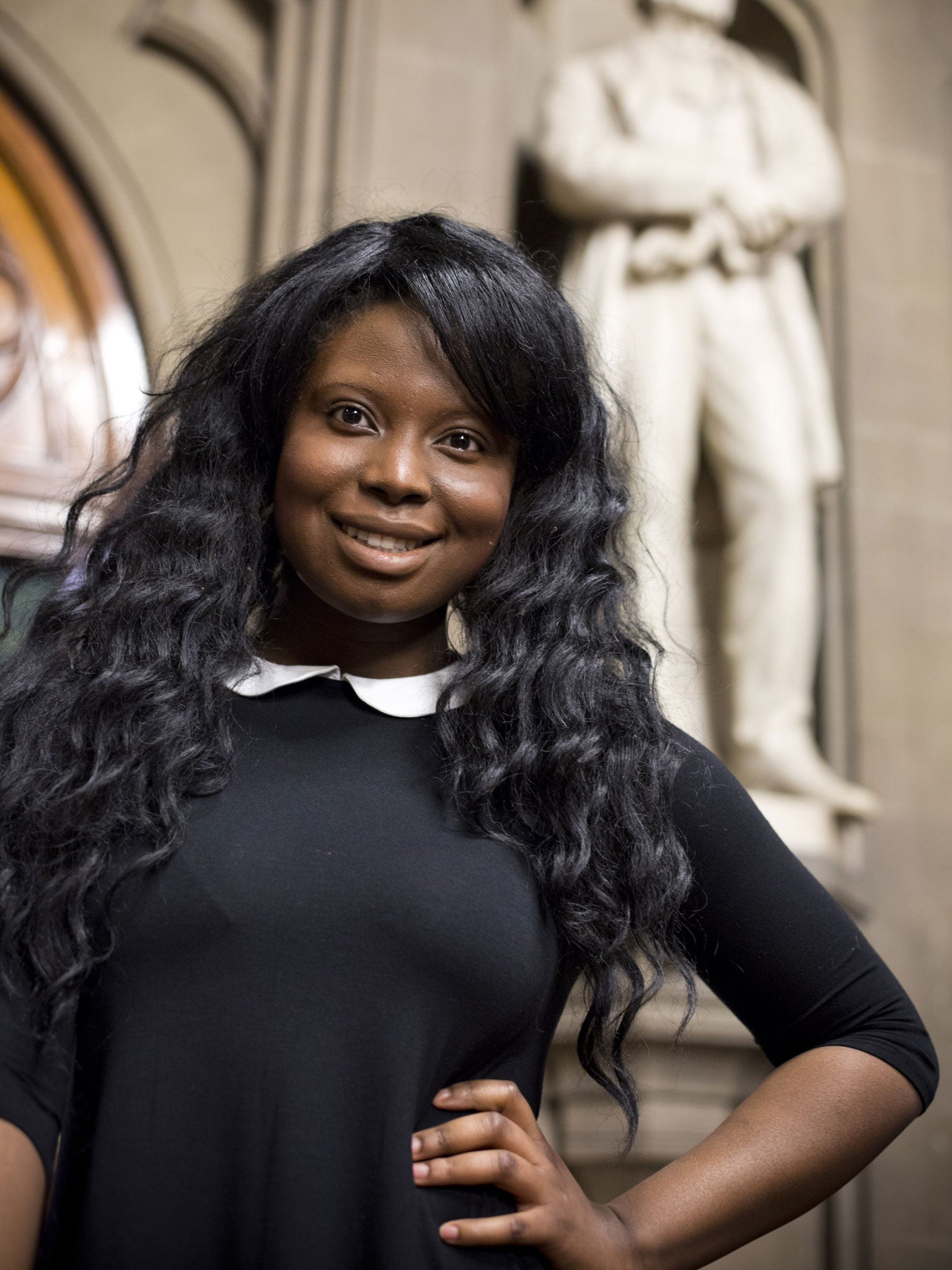Teenager attempts to become an MP in planet’s most dangerous nation
Manchester student determined to make a difference

It is one of the most dangerous and violent countries on Earth. Yet the perils of the conflict-ridden Democratic Republic of Congo have not stifled the ambitions of a British teenager who is to stand as an MP at the country’s next general election.
Noella Kisina, 19, who studies at Salford University, is determined to return and win over voters in the land of her parents, who fled to Britain in 1993 to escape the bloodthirsty regime of President Mobutu.
The politics and international relations student wants to tackle the violence, poverty and lack of education in the mineral-rich Central African Republic, which has been plagued with ongoing tribal conflict between the Hutus and the Tutsis for more than 20 years.
Ms Kisina, who was present at the i debate on political engagement in Manchester on Tuesday night, has forged remarkable links with the local mayor in territory, her targeted constituency, and is backed by the Congolese ambassador to the UK, His Excellency Barnabe Kikaya Bin Karubi, who was impressed with her dedication when she completed an internship at the embassy two years ago.
“I have visited Congo many times and seeing the poverty that was prevalent in Madimba territory made me want to help the people,” she told i. “Looking around with all those minerals and you see the people suffering, that made me want to be politically active and do something about it.”
Ms Kisina, who still lives with her parents in Wythenshawe, south Manchester, said she had won high-level political backing as the Congolese elite are desperate to attract back some of the Western-educated diaspora whose parents fled the brutal wars which have killed 5.4 million people since 1998 – the world’s deadliest conflict since the Chinese civil war.
Democratic Republic of Congo also has the worst rates of rape and sexual violence on Earth.
Asked if she was scared to return to seek election inside a dangerous war zone, Ms Kisina said: “Yes, I am scared… but at the same time I am motivated and there is a driving force within me to make a difference.
“There is obviously going to be danger and the militias mean there is some level of risk.”
Speaking after i’s second student debate, where an overwhelming majority of young people in the audience said they plan to vote in the next election despite feeling under-represented by the current Westminster parties, Ms Kisina said she had been inspired to return to the Congo by watching and learning from the much-maligned British political system.
“I was always politically aware as a child,” she said. “Because parents were refugees that left a mark on me and made me aware of the situation. Because I was born here, raised in this country with a very democratic society, made me want to be politically active, and to help democracy in the land of my parents.”
On top of her university studies, Ms Kisina has already established and runs a charity in Congo – African Christian Associates – which distributes books, toys and medical equipment to those in desperate need.
The huge country has been ravaged by militias fighting for control of the land’s rich mineral deposits, including gold, diamonds, copper and coltan, which is used in mobile phone manufacture.
Earlier this month, Germain Katanga, a Congolese militia leader known as “Simba”, was found guilty of five counts of war crimes and crimes against humanity at the International Criminal Court in The Hague – only the second conviction since the ICC was created 12 years ago.
His offences relate to a massacre in the village of Bogoro in 2003. As the judgment was handed down, the court heard vivid descriptions of the horror, as “part of an operation to wipe out the civilian population”.
Join our commenting forum
Join thought-provoking conversations, follow other Independent readers and see their replies
Comments
Bookmark popover
Removed from bookmarks